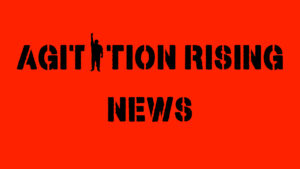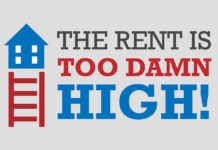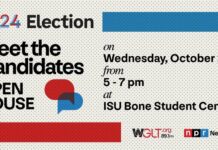This is the transcript of a public comment given to the Peoria City Council on August 27th, 2024. It is a brief legal analysis of the Supreme Court decision, City of Grants Pass v. Johnson, regarding homeless encampments.
According to the federal government, homelessness in this country has reached its highest levels since the government began reporting data back in 2007. On any given night, it is estimated that 600,000 people are unhoused. The number of homeless encampments across the country have reached levels hitherto unseen in over a century. It is estimated that 78% suffer from mental-health issues, and 75% struggle with substance abuse.
As you continue to contemplate new ordinances to manage Peoria’s homeless residents, I wanted to provide details about the Supreme Court case City of Grants Pass v. Johnson. The decision overturned a previous district court ruling Martin v. Boise. Martin banned municipalities from enforcing public-camping ordinances against the homeless whenever the number of homeless individuals in a jurisdiction exceeds the number of practically available shelter beds. It had be ruled by the district court that punishing people with nowhere to go constituted cruel and unusual punishment under the 8th amendment. The 8th amendment states in full, “Excessive bail shall not be required, nor excessive fines imposed, nor cruel & unusual punishments inflicted.”
The majority of the Supreme Court disagreed in Grants Pass for a number of reasons. One of the majorities’ arguments was that it was not within the judiciary’s power to determine whether a person was involuntarily homeless or not. The majority argued that it was the proper jurisdiction of legislatures to determine how the term involuntarily homeless was to be defined. Nothing in the ordinance presented previously provides such a definition, though the Supreme Court has stated it is up to you to define.
Previous court cases had also argued that such ordinances specifically targeted the homeless, i.e., they specifically targeted a person’s status not simply an action. The majority opinion also disagreed with that. It argued such ordinances applied equally to any person caught camping on public property. But, oftentimes laws are written in such a way so they are prima facie status neutral though they are applied in such a way that they discriminate against a person based on their status. Many Jim Crow laws were technically race-neutral in their language, but only applied to people of color. It’s why in 1964, we had to pass a constitutional amendment barring poll taxes 94 years after the 15th amendment expanded the franchise to black people; because poll taxes were being used to deny black people the vote. Just as in Grants Pass, we are not debating this issue because we are worried about backpackers, vagabonds, or wandering wizards sleeping on public property; we are debating this because the homeless are sleeping on public property. The Ordinances’ purpose, text, and enforcement confirm that they target status, not conduct. For someone with no available shelter, the only way to comply with this Ordinance is to leave Peoria altogether.
Here are some quotes from the dissent of Grants Pass by Justice Sonya Sotomayer:
Sleep is a biological necessity, not a crime. For some people, sleeping outside is their only option. The City of Grants Pass jails and fines those people for sleeping anywhere in public at any time, including in their cars, if they use as little as a blanket to keep warm or a rolled-up shirt as a pillow. For people with no access to shelter, that punishes them for being homeless. That is unconscionable and unconstitutional. Punishing people for their status is ‘cruel and unusual’ under the Eighth Amendment.”
This decision leaves the homeless with an impossible decision: either stay awake or be arrested.
For people with nowhere else to go, fines and jail time do not deter behavior, reduce homelessness, or increase public safety.
Sotomayer noted that imprisonment for up to six months is not in itself cruel or unusual. However, when it is applied based on one’s status, then even one day in jail is cruel and unusual punishment.
Finally, the majority in the Grant’s pass decision forgot that part of the 8th amendment includes the excessive fines clause. Sotomayer states:
That Clause separately limits the government’s power to extract payments, whether in cash or in kind, as punishment for some offense. The touchstone of the constitutional inquiry under the Excessive Fines Clause is the principle of proportionality: The amount of the forfeiture must bear some relationship to the gravity of the offense that it is designed to punish. The District Court in this case concluded that the fines here serve “no remedial purpose” but rather are “intended to deter homeless individuals from residing in Grants Pass.” Because it concluded that the fines are punitive, it went on to determine that the fines are ‘grossly disproportionate to the gravity of the offense and thus excessive.


![SCOTUS[1]](https://agitationrising.com/wp-content/uploads/2024/10/SCOTUS1-696x392.jpg)























